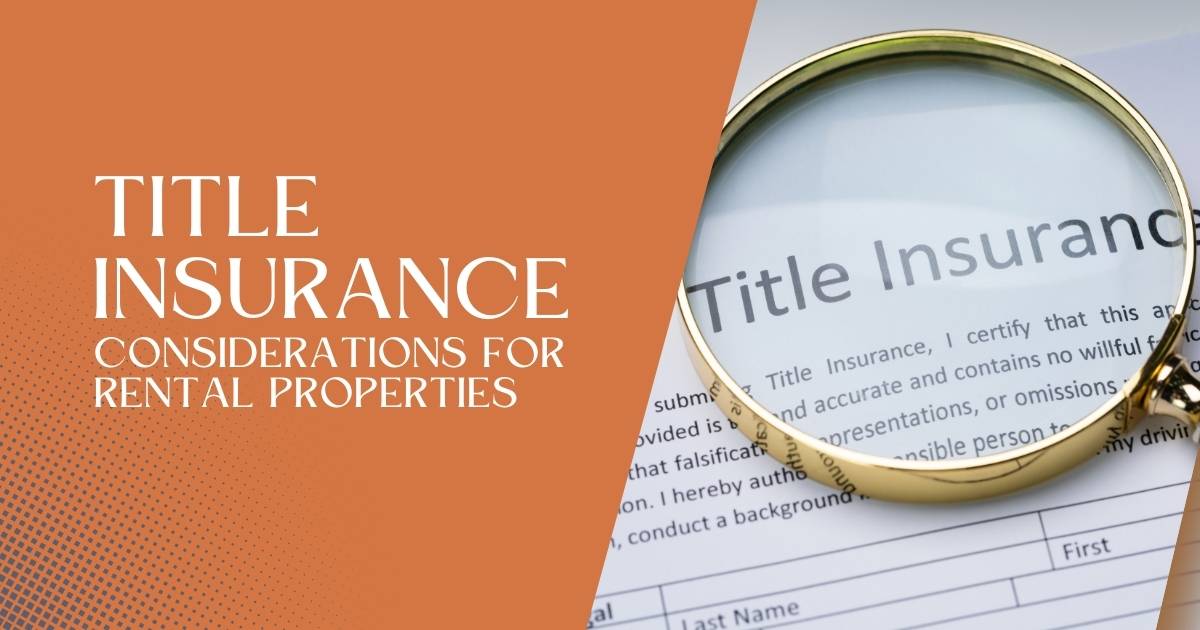Buying rental properties is a great way to make money, but it can also come with risks. One big risk is having problems with the property’s title, which could lead to legal or financial issues. Title insurance is a type of protection that helps you avoid losing money if something goes wrong with the title. In this article, Oakloop willexplain the key things to know about title insurance for rental properties and why it’s so important.
What is Title Insurance?

It is a policy that protects you from problems related to a property’s title. The title is the legal document that shows you own the property. Sometimes, there can be mistakes or hidden issues, like unpaid taxes or a dispute over who really owns the land. It helps cover the costs if something like this comes up.
Two Types of Title Insurance
There are two main types of title insurance policies:
- Owner’s: This protects you, the property owner, in case someone challenges your ownership.
- Lender’s: This protects the mortgage lender if there are problems with the title. If you’re borrowing money to buy the rental property, the lender will usually require this insurance.
Why It Is Important for Rental Properties

Owning rental properties means you depend on regular rental income. If you have legal issues with the title, it could affect your ability to rent or sell the property, and it might even cost you a lot of money. This insurance helps you avoid these problems, giving you peace of mind.
Avoid Legal Problems
Legal issues with a property’s title can be expensive and time-consuming. For example, someone might come forward claiming they have rights to the property. The insurance protects you by covering legal fees and other costs if a dispute happens.
Protects Against Liens
Sometimes a property might have unpaid debts, called liens, that stick with the property even after it’s sold. For example, a previous owner might owe money for unpaid property taxes or repairs. It helps make sure you don’t have to pay these debts.
Protection from Fraud
Property fraud can happen when someone fakes documents or tries to sell a property they don’t own. With title insurance, you’re protected if something like this happens. The insurance will cover your legal costs and help resolve the situation.
Common Title Issues You Should Know About

Rental properties can have more complicated histories than other properties, which means there’s a higher chance of title problems. Here are some common title issues and how it protects you.
Mistakes in Public Records
Sometimes, mistakes happen when public records are filed. This could include wrong information about property boundaries or ownership. These errors can cause disputes, but title insurance covers the cost of fixing them.
Undisclosed Heirs
If the property was inherited, there could be family members who weren’t included in the sale. If one of these heirs comes forward, you could face legal challenges. Title insurance protects you from these kinds of claims, so you don’t lose your property.
Unpaid Property Taxes or Liens
Some properties come with unpaid property taxes or other debts. Without title insurance, you could end up being responsible for paying these bills. Title insurance takes care of these costs so you don’t have to worry about old debts.
Property Boundary Disputes
A common issue with rental properties is disputes over property boundaries. Your neighbors might say your property line crosses into their land. The insurance helps cover the costs of resolving these disputes, saving you time and money.
How Much Does It Cost?

The cost of the insurance varies based on things like where the property is located and how much it’s worth. Typically, the cost is between 0.5% and 1% of the purchase price. The good news is that it’s a one-time payment, and the policy lasts as long as you own the property.
What Affects the Cost of Title Insurance?
- Location: Some areas have more title issues than others, which can make the insurance more expensive.
- Property History: Older properties or those with a complex history may cost more to insure.
- Property Type: Rental properties, especially if they have multiple units, might be more expensive to insure.
When Should You Buy Title Insurance?

It’s best to get it when you’re buying the rental property. Usually, it’s included as part of the closing costs. If you’re getting a loan, the lender will require the lender’s title insurance, but you should also get owner’s title insurance to protect your investment.
How Long Does Title Insurance Last?
Title insurance is different from other types of insurance because it doesn’t need to be renewed every year. Once you buy it, you’re covered for as long as you own the property. This makes it a one-time cost with long-term benefits.
How to Choose a Title Insurance Company
Choosing the right company is important to make sure you get the best protection. Here are a few tips on what to look for:
- Reputation: Look for a company with good reviews and a solid history of resolving claims.
- Coverage Options: Make sure the company offers the kind of coverage you need, especially if you’re dealing with rental properties.
- Pricing: Get quotes from different companies to compare prices, but remember that the cheapest option isn’t always the best.
Conclusion
Owning rental properties is a great investment, but it’s not without risks. Protecting your investment with title insurance can save you from costly legal problems, unpaid debts, and other title issues. With title insurance, you can feel confident that your property is safe and secure for years to come.








